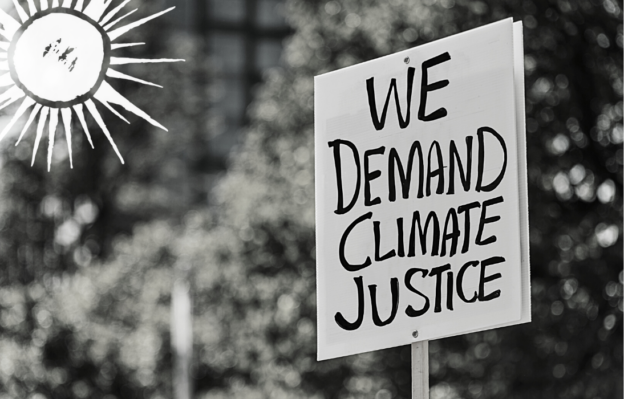
Laudato Si Week Calls Us To Advocate For Our Whole Community
Virginia Schilder
May 27, 2022
This is part three in a three part reflection on Laudato Si Week, which is May 22-29, celebrates the anniversary of Pope Francis’ encyclical on integral ecology and care for creation by inviting all people of goodwill and prayer and study to on how they can tackle the climate crisis.
Read Part One Here | Read Part Two Here
The Catholic tradition affirms this interrelationality and calls us to honor our interdependence in holistic, grounded, ecological communities. One of the key principles of Catholic Social Justice is “Care for Creation.” In addition to conserving the Earth and curbing climate change, this principle calls us to critically examine how we live — how we encounter and treat living, breathing bodies and how we understand ourselves and what we need to live well.
This means reflectively asking ourselves: What does it mean to live in ecological community?
Luckily, ecological community exists all around us – in the interactions between plants and animals (including humans) outside your window, for example, but also among humans anytime we help one another and work for our mutual flourishing. Alternatives to the alienation of our present structures are already in practice, modeled by those who choose, as best they can within damaging systems, to live out ecological harmony. Through even small acts of connection, we participate in our common ecosystem life, and thereby resist systems of destruction and disconnection.
Promoting ecological justice policies, especially as they arise in NETWORK’s Build Anew agenda, embody Catholic Social Justice in their care for the earth and its inhabitants. These policies include ending fossil fuel tax subsidies, guaranteeing clean, safe drinking water as a right in all communities, updating water infrastructure and protecting watersheds, restoring ecosystems, instituting widespread renewable energy access, and developing other green infrastructure and natural solutions. They include curbing the ongoing conversion and destructive development of land (especially Native lands), and supporting green economies, localized agriculture, and responsible and integrated land stewardship.
As we enact other social and economic policies, we have a responsibility to make equitable ecological impact a key consideration. Dr. Kate Ward writes that in a just economy, “The environmental costs of economic production, which impact human health and livelihood, would be borne equitably when they cannot be eliminated.”
The same goes for environmental benefits, which we must equitably share. Our economic restructuring, including with the recovery package, must center ecological impact while prioritizing equity and community needs – because protecting the most vulnerable communities necessarily means protecting the land, air, and water on which they depend.
But above all, we are called to adopt an integral ecological orientation in our advocacy work and in the way we envision a just society. This means taking an ecosystems-view: highlighting our interrelationality, rooting more deeply in the land, and working from and in communities to conserve and promote mutual flourishing. It means taking seriously our interdependence with and embeddedness in all of creation, and letting that realization transform our politics.
Additionally, we can never discuss ecological justice without speaking of colonialism. Colonialism operates in large part via the stealing and destruction of the lands, waters, and wildlife on which Indigenous peoples’ livelihoods and cultures depend. Native Americans and First Nations peoples have sustainably inhabited and skillfully stewarded North America for millennia. It is impossible to truly respect and honor Native communities without also respecting and honoring their rights to land access, inhabitation, protection, and stewardship. Ecological justice means ensuring that economic development does not further burden Native communities with environmental destruction, and that our policies cease the ongoing usurpation and poisoning of Native lands.
Regardless of our issue area or community role, we are called to see that building thriving communities requires not domination over but harmony with the Earth. Because in an ecological sense, justice means the fullness of all God’s holy creation in integrated community.
Virginia Schilder, a graduate student attending divinity school in Massachusetts, completed a one-year fellowship with NETWORK’s Communications team in early May 2022.








